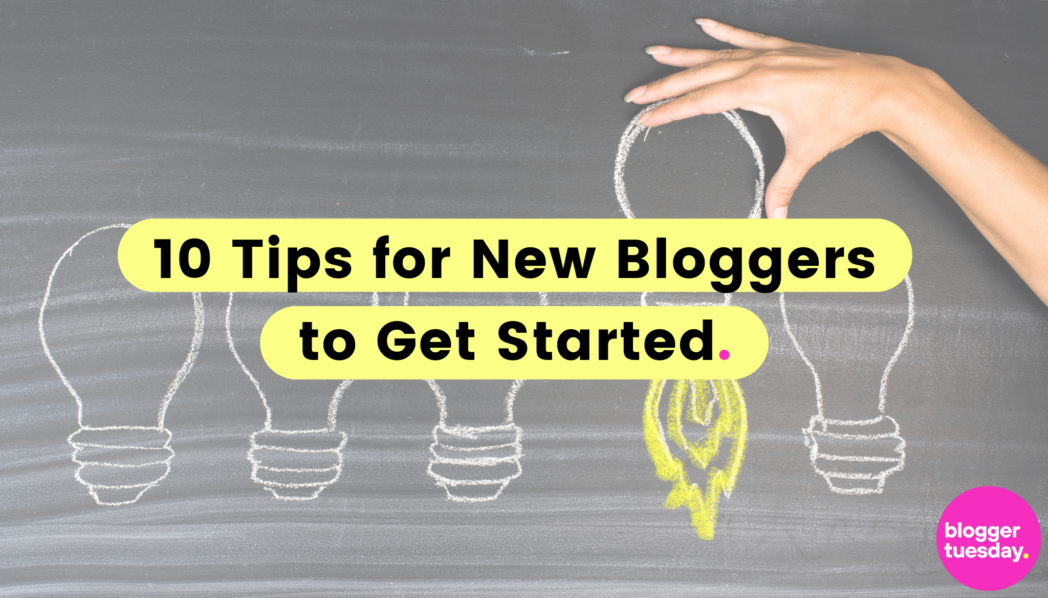So you’ve made the momentous decision that you want to throw your hat in the ring, and create your very own blog! Congratulations, you have taken the very first step to creating your online empire. However, if you are a little unsure of what to do next, you’ll find some expert tips grounded in real-world practice that will help you on your journey to becoming a successful blogger, below.
Tip 1: Decide on your category
Before you do anything else it is going to help to have an idea of what you want to blog about. This is what is known as your blog topic or category, and it simply means the field of interest in which you will be blogging.
The category that you choose is important for two key reasons. The first is that you will find it infinitely easier and more enjoyable if you choose a category that you are interested in. Secondly, the category in which your blog can have a significant impact on the revenue you can bring in if you choose to monetise your blog, so it’s well worth checking these out beforehand. For example, if you head over to Google Adsense you will be able to see that some categories offer a higher RPM (Page revenue per thousand impressions) than others with categories such as Home & Garden being at the top.
Tip 2: Find your niche
Your niche on the other hand should be a smaller subsection of your category that you will focus on specifically. For instance, your category could be travel, but your niche may travel within a specific country (Brazil), for a specific type of person (women), or from the perspective of an additional factor (budget).
Having a clear niche is very helpful for new bloggers because it ensures that they create content that clearly meets the needs of their target audience. Indeed, always knowing precisely who you are writing for is a crucial aspect of successful blogging. With that in mind, considering demographics like age, class, gender, and location are all crucial, and you can even use things like user persona techniques to help you get a more rounded view of your readers and what they want as well as what their pain points are.
Tip 3: Research your competitors
Sometimes for new bloggers, it can help to frame their blog as the product they are creating and evaluate it in terms of what others are doing within the same niche. In essence, the advice here is to look at what other bloggers are writing about in your category, what they are doing well, and what gaps are left to be filled. You can then use this information to guide what you will do with your blog.
For example, if you are in the classic automotive niche and you notice your competitors are providing a lot of original images of classic cars, this is something you will also need to do to stay competitive. Additionally, if you notice that your competitors write a lot about how to maintain the engines of classic cars, but leave out information on repairing and maintaining the bodywork, you can fill this gap and add value to your readers that they cannot get elsewhere.
Tip 4: Name your blog
The name of your blog is important, but don’t let it trip you up as a new blogger. It needs to be good, but it doesn’t have to be perfect, because the name of your blog will become associated with your content, and as long as that’s of high quality you’ll be OK.
There are some rules that you need to consider when naming your blog though. Where possible, choose a name that has something directly to do with the subject of the blog. Try and pick a name that is SEO optimised too, as this can help you appear above your competitor in the search engine results pages.
Tip 5: Get familiar with the technical aspects of running a blog
You may think that blogging is all about researching, planning, writing and editing written pieces. However, the reality of running a blog also involves a significant amount of technical work as well. Indeed, there are several things you will need to get to grips with when setting up your own blog including the platform you will use, the host you will choose, and your domain name.
When it comes to choosing a platform most bloggers opt for WordPress, this is because it offers a low-cost option that allows for a great deal of customization. However, there are a range of other platforms to consider as well including Squarespace, Wix, and GoDaddy. It’s also worth noting that some platforms such as WordPress require bloggers to find and pay for a separate host such as DreamHost. There are advantages to being able to do this, but it can be technically quite complicated especially when you need to build your site from scratch, which can be an added challenge for new bloggers.
Tip 6: Choose a domain name
When you choose your platform and/or host you will be able to select a domain name for your blog such as myblog.com. It’s not only important to get the bit before the dot right (usually your blog name or something similar) but also the extension after the blog as well. For example, .com domain names tend to be the most popular because they inspire confidence and are used by big companies. However, using something like a .club extension for a commercial site may give off a less-than-professional impression.
Tip 7: Set yourself goals & monetise
Next, for new bloggers, you must set yourself goals when you begin. This is because they will keep you focused and motivated as well as guide what you will do. One of the most important goals to set around your blog is whether you want it to make money or not.
If you do, then working out how you will monetise your blog is crucial. The good news is there are several ways you can monetise your blog, and some can be done at the same time.
The first option is to monetise your blog through ad revenue. This is where you allow advertising companies like Google Adsense or Ezotic to host ads on your site. You then get paid on how many impressions each ad gets. You can also monetise your site by hosting paid posts. These tend to be written by others and include sponsored links designed to boost a business’s or organisation’s SEO.
<iframe width=”560″ height=”315″ src=”https://www.youtube.com/embed/MLgAsG9q8-0?si=Nfpw7x0mZje08rv9″ title=”YouTube video player” frameborder=”0″ allow=”accelerometer; autoplay; clipboard-write; encrypted-media; gyroscope; picture-in-picture; web-share” allowfullscreen></iframe>
Other ways to monetise your blog include selling real or digital products, offering paid reviews, and joining affiliate schemes. Affiliate schemes are where you get paid for referring customers from your site to a business or product, with Amazon being one of the leaders in this field.
Tip 8: Do your keyword research & SEO
Next, as a new blogger, you’re going to need to sit down and do some serious keyword research. Keyword research is crucial for SEO (search engine optimization) and SEO is vital if you want to make sure your blog gets found and visited by the right people.
The key to good keyword research is to find terms that are being searched for a lot, but also have a relatively low keyword difficulty. Keyword difficulty is a metric that indicates how easy or hard it will be to rank for a specific term. That means if you choose a high-volume keyword with low keyword difficulty you should (with some quality writing) be able to get some of that traffic.
To find such keywords using a keyword tool like SEMRUSH, AHREFS, or Ubersuggest can be very helpful. Some even offer free tools, so you don’t have to sign up for an expensive subscription to get the info you need.
Tip 9: Get to grips with Google Analytics
Another thing that a new blogger will need to do is begin to wrap their head around Google Analytics. Google Analytics is a service provided by Google that monitors your site and offers data such as performance volume, page indexing, and user experience. All of these you can use to track how well your site is doing and inform any changes or improvements you wish to make.
SEO tools like the ones mentioned above will also provide their own analytics for your site, and all offer the data in an easy-to-read digital dashboard format.
Tip 10: Always add value
Last, of all, the key thing for new bloggers to remember is that they should always be adding value to their site. What this means is that as a new blogger, you need to be doing all you can to make your blog as meaningful, useful and entertaining to your audience as possible.
Of course, writing high-quality content that is well-formatted, and includes great images is the perfect start to this. However, there are other things you can do such as encourage your readers to comment and interact with your blog, creating a community of which they will want to be a part.


